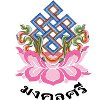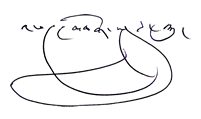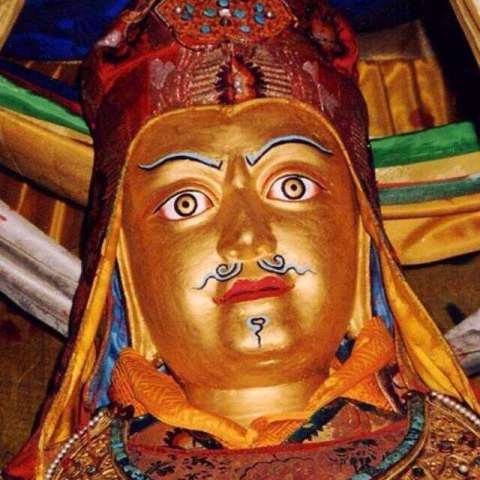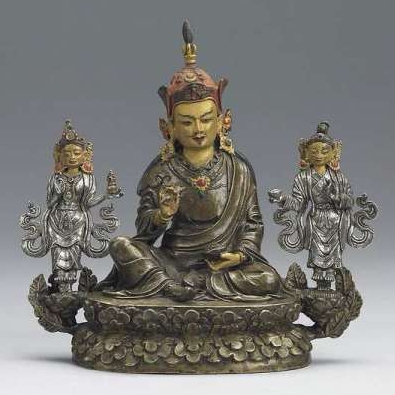Meditation and Dharma classes by Ven. Lama Rinchen (Tibetan Buddhist Master)
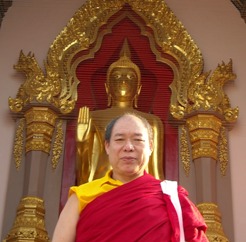
We would like to invite you to public Dharma talks be Ven. Lama Rinchen Phuntsok in Bangkok areas in June 2015.
Venerable Lama Rinchen Phuntsok is a skillfull teacher with a light and joyful manner. He is a scholar and meditation master of the Tibetan Buddhist Tradition.
Biography can be found at http://dongakcholing.org/LamaRinchen.html
Topic: “Attachment, Detachment, Aversion and Antidote”
Date: Sunday 21st June 2pm-5pm
Venue: The Continent Hotel (near Asoke intersection next to Interchange tower, on Sukhumvit road, hotel web site: www.thecontinenthotel.com/location/) 33rd floor GMT room
Note: Limited seats, please RSVP by email ram@pluslab.com
Topic: “Virtuous and Unvirtuous mind and their action”
Date: Monday 22nd June 6:30pm-8:30pm
Venue: ‘APARTMENTS’ building, Ekkamai road near Ekkamai BTS station, more information on www.littlebang.org Location: www.littlebang.org/step-inside/apartments-meditation-studio-2/
Topic: “The Textual Tradition of the Nyingma School of Tibetan Buddhism”
Date: Wednesday 24nd June 1:30pm-3:30pm
Venue: Mahidol University, Kanpai Room, Ground floor, Department of Humanities, Salaya
For more information please email: prasajya@gmail.com
For more information please feel free to contact us at:
Tel: (Eng) 0819855564,0989195519 – (Thai) 0894817754
Email: ram@pluslab.com
Web: www.mongkol.org
You can signup to our mailing list at: www.mongkol.org/contact/
These events are free of charge and suitable for everyone.

Lama Rinchen Phuntsok Bangkok Dharma classes in June 2015
Video from Phakchok Rinpoche
https://www.youtube.com/watch?v=9qhl8FGBAwQ
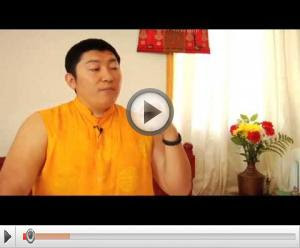
| Phakchok Rinpoche message on Guru Rinpocheday 8th June 2014 |
|
|
|
|
|
Guru Rinpoche Day, 8th June 2014
|
|
|
|
|
|
|
|
|
|
|
|
|

Dear Friends Near and Far,
These days we often mistake what it’s meant to be a dharma practitioner. The heart of the buddhadharma is to tame one’s own mind, so a dharma practitioner is someone who is able to do this, who can see their own faults, address them, and tame and transform their minds. Someone who is unable to do this is not a dharma practitioner. Secondly, a dharma practitioner should be sincere and honest. So if you wish to practice the buddhadharma authentically this you need these qualities.
In terms of our motivation for practice, we need to have compassion and our compassion should have four qualities.
To generate compassion means to see sentient beings’ suffering and the causes of their suffering and to wish to free them from it. You also need to be able to see your own suffering and its causes, to see and experience this directly for yourself. If you can, it will not be difficult to generate compassion for others. Likewise, if you can understand that you have been connected to all sentient beings from beginningless time until now as parents and children that will make generating compassion easier, and will also help you to have more equanimity.
You need to contemplate compassion in this way and when you see someone else suffering put yourself in their shoes and try to imagine what it would be like to be going through what they are going through. If you can put yourself in their position and really understand their suffering, you’ll develop some compassion. Having developed this initial compassion then you need to improve it. Don’t leave compassion as a mere thought; apply it in your behaviour and actions. When you do this you will be able to see whether your compassion is genuine or not, whether it is pure, strong, and constant or not. This is the first quality our compassion should have: application.
Since compassion is the wish to free oneself and others from suffering and its causes the second quality our compassion needs to have is dignity. Dignity here means you see and acknowledge your suffering and the suffering of others, and you have the confidence that you can dispel it and its causes, that you have the means and methods to do that. Where does this dignity arise from? It arises from genuine practice of the dharma. It is through practice that you will develop this confidence that you can bring about change. And therefore, someone who has this dignity is a practitioner. Someone who lacks this dignity, who lacks the confidence that they can change, is not a practitioner.
The third quality is aspiration, the sincere and heart-felt aspiration to benefit other beings. We need to have this genuine aspiration and wish.
But it’s not enough to leave it there, as an aspiration. To make our compassion pure, we need wisdom, prajna.
So to reiterate, whatever we do we should do it with compassion – we need to apply compassion in all of our actions. Secondly, our compassion needs to be accompanied by dignity, a confidence that we can change. Thirdly we need aspiration and fourthly wisdom. If our compassion has these four qualities, it will be pure, genuine, and strong.
Since, as you all know, we need to develop this kind of genuine compassion then while thinking of you all on this Guru Rinpoche Day I am sharing these few points on compassion with you. But in addition to generating compassion ourselves we also need to teach our family and friends about compassion, to talk about it calmly and nicely with them while continuing to practice it ourselves.
With constant aspirations for you all,
Sarva mangalam,
Phakchok Rinpoche
 
www.phakchokrinpoche.org / www.cglf.org |
|
|
|
|
|
Dear Friends from Near and Far,
This month is the tenth Tibetan month (Monkey month), which is also Guru Rinpoche’s month. On this Guru Rinpoche Day in this very auspicious month, I wish all my friends happiness and health and may all your wishes be fulfilled.
I am writing to all of you from Singapore, where today we are doing the Sampa Lhundrub (Spontaneous Fulfilment of Wishes) Feast Offering Puja for the whole day, generating vast accumulation of merit. The past two days, we completed the Lama Norlha (King of Wealth Deities) retreat, which also went very successfully.
During the retreat, I shared with my friends an important tip about success. In order to be truly successful in life, we must have kind and caring mind, and especially a generous mind. Giving is important and when we know how to give, we become successful. Only by giving unconditionally and without any taint of stinginess on our part, will we generate the conditions for success and good fortune. Please keep this in mind, and try to apply this in your daily life.
Take care yourselves and practice diligently. Don’t be lazy. Take care of your health, not only physically but also mentally.
Wishing you every happiness and joy, and with constant aspirations,
Phakchok Rinpoche
Sarva Mangalam!
Guru Rinpoche Day Teaching – 12 November 2013
คำสอน เนื่องในวันรำลึกถึง คุรุปัทมสมภพ ประจำวันที่ 12 พฤษจิกายน 2556
Dear Friends Near and Far,
สวัสดีกัลยาณมิตรทั้งใกล้และไกล,
With warm greetings to you all this wonderful Guru Rinpoche Day of the ninth Tibetan month, today I would like to share four simple and practical points:
เนื่องในวันรำลึกถึงกูรูรินโปเชประจำเดือนที่ 9 ในปฏิทินทิเบตข้าพเจ้าอยากจะแบ่งปันหัวข้อข้างล่างทั้ง 4 ที่ง่ายและนำไปปฏิบัติได้จริงพร้อมทั้งมอบคำทักทายอันอบอุ่นให้กับพวกเธอใน วันพิเศษนี้
1. We all want happiness, and we all want to be free from suffering. This is our most basic wish. And to accomplish this, some of us are studying and practising the dharma, Buddha’s teaching. There are many others who are not interested in the dharma, but either way, we are all seeking the same thing. Regardless of whom we are, one of the most important factors in helping realize this basic wish is cultivating a calm, peaceful mind. This isn’t something that comes straight away though; we need to develop it bit by bit. For this reason, the practice of shamata (calm-abiding) meditation is so very important: practicing shamata meditation focusing on the cycle of the breath every morning for fifteen minutes or so. Through training in this, our mind will gradually calm down and we’ll gain some control over our state of mind. This control will prove to be extremely helpful in quelling our uneasiness when we encounter difficult circumstances and emotions, like stress and frustration.
1. เราทุกคนต้องการความสุขและเราทุกคนต้องการที่จะเป็นอิสระจากความทุกข์ นี่เป็นความปรารถนาระดับพื้นฐานขั้นแรกสุดของเรา และเพื่อให้บรรลุเป้าหมายนี้พวกเราบางคนศึกษาและนำธรรมะ (คำสอนของพระพุทธเจ้า) มาปฏิบัติ และยังมีคนอื่นๆอีกหลายคนที่ไม่ได้สนใจในธรรมะ, อย่างไรก็ตามพวกเราทุกคนล้วนแสวงหาสิ่งเดียวกันดังกล่าวมาข้างต้น ไม่ว่าเราจะเป็นใคร, การเพาะบ่มจิตที่สงบสุขสันติเป็นหนึ่งในปัจจัยที่สำคัญที่สุดในการช่วยให้ ความปรารถนาขั้นพื้นฐานสัมฤทธิ์ผล แต่จิตที่สงบไม่ได้มาจากการแบมือขอหากแต่มันมาจากการเพียรฝึกฝนทีละเล็กทีละ น้อย ด้วยเหตุนี้การปฏิบัติสมถะกรรมฐาน (การภาวนาเพื่อให้จิตเกิดความสงบ) เป็นสิ่งสำคัญมาก: เธออาจจะเริ่มต้นด้วยการปฏิบัติสมถะกรรมฐานแบบเพ่งดูลมหายใจที่เข้าและออก (อานาปานสติ) ทุกเช้าเป็นเวลาประมาณสิบห้านาที ด้วยวิธีนี้จิตของเราก็จะค่อยๆ สงบลงทีละน้อยและเราก็จะการควบคุมอาการของจิตของเราได้ในที่สุด การควบคุมจิตได้จะเป็นประโยชน์อย่างยิ่งในการขจัดปัดเป่าความไม่สบายใจของ เราเมื่อเราประสบกับสถานการณ์ที่ยากลำบากและอารมณ์อันเกี้ยวกราดและเลวร้าย เช่น ความเครียด และความขัดเคืองใจ
2. Secondly, in our quest for happiness we need love and compassion. These are indispensable qualities. We really cannot do without them. If we lack compassion and concern for people and are always getting angry with them, we won’t have a very pleasant time ourselves, and it goes without saying that this will make life difficult for those around us. So we need care and love for our family and friends and a basic empathy and concern for everyone around us, an empathy that allows us to feel connected to all other humans, a very open and caring state of mind. Otherwise, without these qualities it will be very difficult for us to live a truly unhappy and enjoyable life; we will in fact just be creating needless suffering for ourselves.
2. ประการที่สอง ในการแสวงหาความสุขเราจำเป็นที่จะต้องมีความรักและเมตตากรุณาต่อผู้อื่น สองสิ่งนี้เป็นคุณสมบัติที่ขาดไม่ได้จริงๆเราไม่สามารถที่พบความสุขอันแท้ จริงได้โดยปราศจากสองสิ่งนี้ หากเราไร้ซึ่งความเมตตากรุณาและความห่วงใยต่อผู้อื่นและมักจะผูกโกรธผู้อื่น อยู่เสมอเราก็จะไม่มีทางอยู่เป็นสุขได้และมันจะทำให้ผู้คนรอบข้างเป็นทุกข์ ไปด้วยอย่างไม่ต้องสงสัย ดังนั้นเราจึงจำเป็นต้องเอาใจใส่และมอบความรักให้กับครอบครัวและเพื่อนของ เราและรู้จักการเอาใจเขามาใส่ใจเราและมีความห่วงใยต่อผู้คนรอบข้าง, การเข้าใจความรู้สึกของผู้อื่นช่วยให้เรารู้สึกผูกพันกับคนเหล่านั้น, มันเป็นการสภาวะจิตที่เปิดกว้างและเต็มไปด้วยความเอาใจใส่ต่อผู้อื่น ในทางตรงกันข้ามหากปราศจากคุณสมบัติทั้งสองนี้มันจะเป็นไปได้ยากที่เราจะใช้ ชีวิตอย่างเป็นสุขและสนุกสนานอย่างแท้จริงได้; มันกลับจะสร้างความทุกข์ทรมานให้กับตัวเองโดยไม่รู้ตัว
3. Thirdly, we need a good balance. If you are a spiritual person then practice the dharma (or any other religion or spiritual path you follow) well and genuinely, and at the same time look after your family and friends. Take good care of your kind parents, grandparents, your siblings, your entire family and all your friends and acquaintances. Also do whatever you can to help those in need through charity and in different ways. This balance I feel is very important. To accomplish this balance, learning and practising the dharma can really help. Even if you are not inclined to follow a spiritual path, it can be very helpful to learn some simple meditation, and of course, whoever we are, to practice charity and care for our families.
3. ประการที่สามเราจำเป็นต้องรักษาสมดุลในชีวิตให้ดี หากเธอเป็นนักปฏิบัติก็จงนำธรรมะมาเจริญภาวนาอย่างจริงๆจังๆและบ่อยๆ (หรือทำตามคำสอนในศาสนาหรือนิกายอื่นๆที่เธอนับถือ) และก็ดูแลครอบครัวและเพื่อนของเธอไปพร้อมๆกัน ดูแลพ่อแม่, ปู่ย่าตายาย, พี่น้อง, สมาชิกในครอบครัวทั้งหมดที่ดีต่อเธอเสมอมา, รวมทั้งเพื่อนๆทุกคน, และคนรู้จักของคุณ นอกจากนี้ก็ทำบุญสุนทานกับผู้ตกทุกข์ได้ยากหรือบำเพ็ญตัวให้เป็นประโยชน์ใน รูปแบบต่างๆที่แตกต่างกันไป ข้าพรู้สึกเลยว่าการรักษาสมดุลนี้เป็นสิ่งสำคัญมาก เพื่อให้เข้าสู่สภาวะสมดุลการใฝ่ศึกษาและปฏิบัติธรรมสามารถช่วยเธอได้จริงๆ แม้ว่าเธอไม่ได้คิดที่จะเอาจริงเอาจังในทางธรรม, มันย่อมมีประโยชน์มากที่จะเรียนรู้การเจริญภาวนาแบบง่ายๆ, และแน่นอนไม่เธอจะเป็นใครก็ตามมันย่อมเป็นประโยชน์ไม่ยิ่งหย่อนไปกว่ากันหาก เรารู้จักทำบุญทำกุศลและเอาใจใส่ดูแลครอบครัวของเราเอง
4. Fourthly, and lastly, we need to be sincere and honest with ourselves. At the same time, we also need self-confidence. By ‚’sincere and honest’ I mean that we need to be able to see and acknowledge our own faults and flaws. But when we see them, we should not fall into self-judgement; rather we should move towards positive change. Just acknowledge your shortcomings, and then do whatever you can to improve. If we slip into self-judgement we can end up making ourselves really miserable and lonely with low self-esteem and many different kinds of problems. So we need to be wary of that and work on reducing our self-judgement, as well as our judgement of others.
4. สุดท้ายประการที่สี่ เราจะต้องมีความจริงใจและความซื่อสัตย์กับตัวเอง ในขณะเดียวกันเราก็ต้องมีความเชื่อมั่นในตนเอง โดย “ความจริงใจและความซื่อสัตย์กับตัวเอง” ในที่นี้หมายถึงเราต้องสามารถสังเกตุเห็นและยอมรับความผิดพลาดและข้อบกพร่อง ของเราเอง แต่เมื่อเราเห็นสิ่งไม่ดีเหล่านั้นของเราเอง เราไม่ควรที่จะเลยเถิดไปถึงขนาดจมอยู่กับการเพ่งโทษตัวเอง; หากแต่เราควรจะปรับปรุงแก้ไขสิ่งไม่ดีเหล่านั้นเพื่อพัฒนาตัวเองต่อไป เพียงแค่ยอมรับข้อบกพร่องของเธอเองและจากนั้นให้พยายามทำทุกสิ่งทุกอย่างที่ เธอจะทำได้เพื่อที่จะแก้ไขสิ่งไม่ดีเหล่านั้นของเธอ หากเราหลงจมอยู่กับการเพ่งโทษตัวเองเราก็จะทำให้ตัวเองรู้สึกสลดหดหู่, โดดเดี่ยวเดียวดาย, ขาดความมั่นใจในตนเองและมีปัญหาอื่นๆตามมาอีกมากมาย ดังนั้นเราจึงจำเป็นที่จะต้องระมัดระวังในสิ่งเหล่านี้และเพียรที่จะลดการ เพ่งโทษทั้งต่อตัวเองและต่อผู้อื่น
These four points I feel are very important factors, whether we be Buddhists or not, in cultivating true happiness and well-being so we can live our various lives with joy, ease, and dignity.
ไม่ว่าเราจะเป็นพุทธศาสนิกชนหรือไม่ข้าพเจ้ารู้สึกว่าหัวข้อทั้ง 4 ข้างต้นนั้นเป็นปัจจัยที่สำคัญมากในการเพาะบ่มความสุขที่แท้จริงและความเป็น อยู่ที่ดีเพื่อให้เราสามารถดำรงชีวิตในแบบต่างๆของเราด้วยความร่าเริง, ผ่อนคลาย, และอย่างสง่างาม
Wishing you every happiness and joy, and with constant aspirations,
ข้าพเจ้าปรารถนาให้เธอมีความสุขและร่าเริงและเปี่ยมไปด้วยแรงบันดาลใจที่ไม่มีวันเสื่อมคลาย,
Phakchok Rinpoche
วัชราจารย์ พักชก รินโปเช
Sarva Mangalam!
ขอมงคลทั้งปวงจงมีแด่ท่าน
@Credit Thai Translator Team

